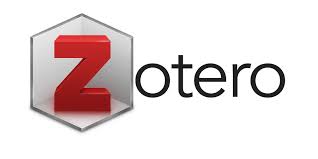Pengembangan Kemampuan Pemecahan Masalah Matematis melalui Habit of Thinking Interdependently
DOI:
https://doi.org/10.29240/ja.v2i1.1486Keywords:
Problem Solving Ability, Habit of Thinking InterdependentlyAbstract
Like the human body, problem solving is the heart of mathematics. Problem solving ability is a capital for students to develop and explore themselves further in mathematics learning. This article aim to explain the development of students' mathematical problem solving abilities through Habit of Thinking Interdependently (HTI). This type of research is literature review where the authors analyze and draw conclusions from several relevant references related to HTI. HTI the attitude of students towards learning mathematics in the form of the habit of thinking together in groups. The conclusions obtained indicate that students' mathematical problem solving abilities can be developed through HTI.
Downloads
References
Akbar, Padillah dkk. (2018). Analisis Kemampuan Pemecahan Masalah dan Disposisi Matematika Siswa Kelas XI SMA Putra Juang dalam Materi Peluang. Journal Cendekia: Jurnal Pendidikan Matematika, 2 (1), 144-153. Retrieved from https://j-cup.org/index.php/cendekia/article/view/62
Caprioara, Daniela. (2014). Problem Solving-Purpose and Means of Learning Mathematics In School. Procedia Social and Behavioral Sciences, 191(2015), 1859-1864. Retrieved from https://www.researchgate.net/publication/282536141_Problem_Solving__Purpose_and_Means_of_Learning_Mathematics_in_School
Charbonneau, et.al. (2009). Developing Students’ “Habits of Mind†in a Mathematics Program. Problems, Resources, and Issues in Mathematics Undergraduate Studies, 19(2), 105. Retrieved from https://www.sciencedirect.com/science/article/pii/S1877042815025926
Charles, R. (1987). How to Evaluate Progress in Problem Solving. Reston, VA: National Council of Teachers of Mathematics
Effendi, Leo Adhar. (2012). Pembelajaran Matematika dengan Metode Penemuan Terbimbing untuk Meningkatkan Kemampuan Representasi dan Pemecahan Masalah Matematis Siswa SMP. Jurnal Penelitian Pendidikan, 13(2), 1-9. Retrieved from http://jurnal.upi.edu/penelitian-pendidikan/view/1852/ pembelajaran-matematika-dengan-metode-penemuan-terbimbing-untuk-meningkatkan-kemampuan-representasi-dan-pemecahan-masalah-matematis-siswa-smp.html
Hiebert, J et.al. (1996). Problem Solving as a Basis for Reform in Curriculum and Instruction: The Case of Mathematics. Educational Researcher, 25(4), 12-21. Retrieved from https://www.researchgate.net/publication/243779916_Problem_Solving_as_a_Basis_for_Reform_in_Curriculum_and_Instruction_The_Case_of_Mathematics
Hendriana, Heris & Soemarmo, Utari. (2014). Penilaian Pembelajaran Matematika. Bandung: Refika Aditama
Huda, Ummul. (2016). Analisis Habit of Thinking Interdependently (HTI) Siswa SMP dalam Pembelajaran Kooperatif. Ta’dib, 19(1), 15-22. Retrieved from http://ecampus.iainbatusangkar.ac.id/ojs/index.php/ takdib/article/download/447/435
Kaur, Berinderjeet. (1997). Difficulties with Problem Solving in Mathematics. The Mathematics Educator, 2(1), 93-112. Retrieved from https://repository.nie.edu.sg/bitstream/10497/132/1/TME-2-1-93.pdf
Kim, Sharon dkk. (2019). Improving 21st-century Teaching Skills: The Key to Effective 21st-century learners. Research in Comparative & International Education, 14 (1), 1-19. Retrieved from https://www.researchgate.net/publication/262091816_Learning_21st-Century_Skills_Requires_21st-Century_Teaching
McGregor, Debra. (2007). Developing Thinking Developing Learning: A Guid to Thinking Skills in Education. New York: Open University Press
Mullis, et.al. (2012). TIMSS 2011 International Results in Mathematics. U.S.: International Association for The Evaluation of Educational Achievment
Ninik, Hobri & Suharto. (2014). Analisis Kemampuan Pemecahan Masalah untuk Setiap Tahap Model Polya dari Siswa SMK Ibu Pakusari Jurusan Multimedia pada Pokok Bahasan Program Linier. Kadikma, 5(3), 61-68. Retrieved from https://jurnal.unej.ac.id/index.php/kadikma/article/view/1374
Pehkonen, Erkki. (2011). Problem Solving in Mathematics Education in Finland. CEPS Journal. 3(4). 9-23, Retrieved from https://files.eric.ed.gov/fulltext/EJ1129533.pdf
Qudsy, Saifuddin Zuhri & Fawaid, Ahmad. (2012). Cooperative learning Metode, Teknik, Struktur, dan Model Penerapan. Yogyakarta: Pustaka Pelajar
Rusman. (2010). Model-Model Pembelajaran Mengembangkan Profesionalisme Guru. Jakarta: PT. Raja Grafindo Persada
Silver, Edward A. (2009). Teaching and Learning Mathematical Problem Solving: Multiple Research Perspectives. New York: Routledge
Stanic, G., & Kilpatrick, J. (1989). Historical perspectives on problem solving in the mathematics curriculum. In R.I. Charles, & E.A. Silver (Eds.), The teaching and assessing of mathematical problem solving (pp. 1-22). Reston, VA: National Council of Teachers of Mathematics
Ulvah, Shovia & Afriansyah, Ekasatya Aldila. (2016). Kemampuan Pemecahan Masalah Matematis Siswa ditinjau melalui Model Pembelajaran SAVI dan Konvensional. Jurnal Riset Pendidikan, 2(2), 142-153. Retrieved from http://hikmahuniversity.ac.id/ lppm/jurnal/2016/text07.pdf
Downloads
Published
Issue
Section
Citation Check
License
Copyright (c) 2020 Fevi Rahmadeni

This work is licensed under a Creative Commons Attribution-NonCommercial-ShareAlike 4.0 International License.
Authors who publish with ARITHMETIC: Academic Journal of Math agree to the following terms:
- Authors retain copyright and grant the journal right of first publication with the work simultaneously licensed under a Creative Commons Attribution-NonCommercial-ShareAlike 4.0 International License (CC BY-NC-SA 4.0) that allows others to share the work with an acknowledgment of the work's authorship and initial publication in this journal.
- Authors are able to enter into separate, additional contractual arrangements for the non-exclusive distribution of the journal's published version of the work (e.g., post it to an institutional repository or publish it in a book), with an acknowledgment of its initial publication in this journal.
- Authors are permitted and encouraged to post their work online (e.g., in institutional repositories or on their website) prior to and during the submission process, as it can lead to productive exchanges, as well as earlier and greater citation of published work (See The Effect of Open Access).







